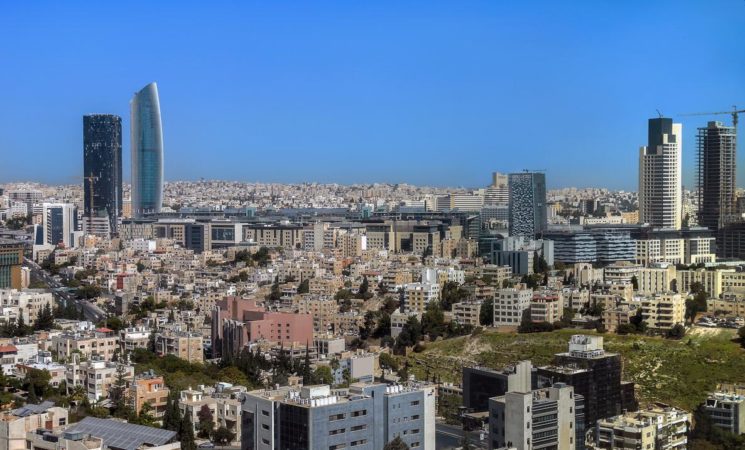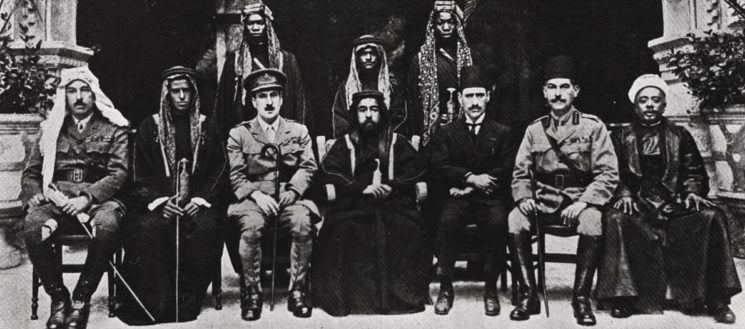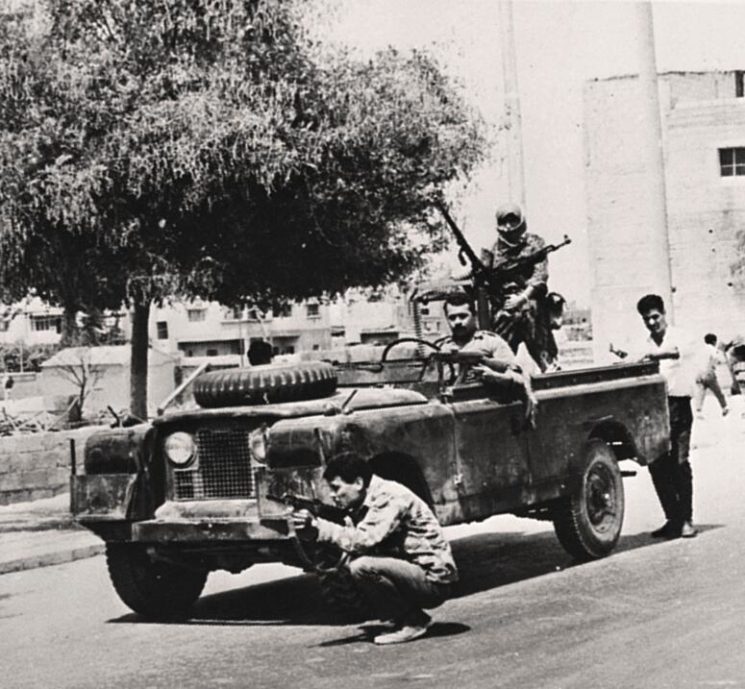Jordan is a monarchy in the Middle East. It borders Syria in the north, Iraq in the northeast, Saudi Arabia in the east and south, and Israel and Palestine (West Bank) in the west. The country has a coastal strip of 26 kilometers towards the Gulf of Aqaba in the south. Jordan is ruled by a Hashemite dynasty which is officially descended from the Prophet Muhammad and is rooted in the country’s Bedouin population. A large part of the population is of Palestinian origin. The official language is Arabic.
Jordan is a new statehood, created after the First World War. It was first subject to British rule, and became independent as Transjordan in 1946.
The area’s history dating back to ancient times encompasses several civilizations, and also the area east of the Jordan River holds a central place in biblical history. The history of the state of Jordan is closely linked to the Middle East conflict; the country took part in the attack on Israel in 1948, and the two countries signed a peace treaty in 1994.
The name Jordan is derived from the river of the same name, and is derived from the Aramaic word yarden, which means to come or descend – linked to flowing water.
People and society
Jordan is a politically liberal but culturally conservative society. The country is sparsely populated; the majority live in the west of the country. The vast majority are Arabs, and a minority of Bedouins, many of whom still live nomadically. The Arab population comes partly from the east side of the Jordan River and partly from Palestinian refugees from the west side. The latter, who have become Jordanian citizens, are believed to constitute the majority of the people. Jordan has welcomed a large number of refugees from Iraq and Syria. At the beginning of 2016, there were around 635,000 Syrian refugees in the country. There are small Armenian, Churches and Turkmen minorities.
About 98 percent of the population is Muslim (Sunni); about 1 percent are adherents and Bahaier and ca. 1 percent are Christians. It’s getting religiously contingent contradictions, and radical Islamism has little foothold, although many jihadists from Jordan is among foreign fighters in the civil war in Syria. The population is young and over a third are under 15; population growth is still high – twice the world average.
State and politics
Jordan is a constitutional kingdom with an elected parliament, where the king has executive power, including appointing the prime minister and senate leader, casting governments and printing new elections, vetoing laws and declaring war and making peace. Parliament’s influence is limited. The monarchy is hereditary; from 1999, Abdullah 2 is king when he succeeded his father, King Hussein 1. According to tradition, the dynasty is descended directly from the Prophet Muhammad.
The National Assembly, Majlis al-Umma, consists of two chambers: a people-elected House of Representatives and an appointed Senate. The House of Representatives, Majlis al-Nuwaab, has 130 members and is elected for four years; 15 seats are reserved for women. There are also quotas for ethnic and religious minorities. Parties were allowed in 1992, but the electoral system brought a majority of independent representatives loyal to the king, which led the opposition to boycott the elections in 2013. A new electoral law that allowed parties to make lists came into effect in 2016, when parliamentary elections were also held. The Senate, Majlis al-Ayan, has 60 members appointed by the king for four years.
Jordan is a member of the UN and the UN’s special organizations, including the World Bank. Jordan is also a member of the Arab League.
History
Jordan as a modern state formation is linked to the disintegration of the Ottoman Empire after World War I, when the great powers established new states, including Transjordan. It was first ruled as an area of mandate by the United Kingdom, to become a self-governing kingdom in 1923, with full independence in 1946. The name Jordan was adopted with the new constitution of 1949. Jordan was then included in the Middle East conflict through the attack on Israel. in 1948. The Jordanian West Bank was occupied by Israel during the Six Day War in 1967, and later abandoned by Jordan.
Abdullah ibn-Hussein, one of the driving forces behind the Arab uprising against the Turks in 1916, became emir in the British mandate Transjordan and King when it became an independent state in 1946 in 1921. The picture shows him during a visit to Cairo in 1920, along with other Arab officials and the British agent in Jeddah (third from left).
The area that makes up Jordan has been inhabited for approx. 8,000 years, and has a rich history with several states, including biblical Moab and Midian; the most famous is Nabatea, with its headquarters in Petra. The area was for several periods subject to other kingdoms, including these Assyrians, Romans and Omayyads; parts of the land were also subject to the kingdom of Jerusalem by the Crusaders. After a time when Jordan entered a historic backstory, the country was incorporated into the Ottoman Empire in the 18th century.
Jordan has played a key role in the Middle East conflict, and in 1994 signed a peace agreement with Israel. After the civil war in Syria broke out in 2011, Jordan has gradually become increasingly affected by it, both by welcoming a large number of refugees and by military participation. In 2014, Jordan joined the multinational military operation with the Islamic State (IS) in Syria, Operation Inherent Resolve. In the fall of 2017, there were 660,000 registered Syrian refugees in Jordan; the real figure was probably twice that. There are also around two million Palestinian refugees in the country.
Relations with Israel and the Palestinian organizations have been difficult at times. After the Six Day War in 1967, when Jordan lost the West Bank, Palestinian guerrilla groups began building bases in Jordan east of the Jordan River, which eventually threatened Jordan’s state power. The settlement between the central government and these groups led to a civil war in which the Palestinians and their supporters suffered defeat. The picture shows Palestinian guerrilla soldiers in Amman during the civil war in September 1970.
Economy and business
Jordan has limited natural resources and, unlike several of its neighboring countries, lacks oil and gas deposits of commercial importance. The country therefore relies on importing energy, and has at times received subsidized oil and gas from other Arab countries. Unrest in the region causes instability in the energy supply. There is also a shortage of water, which is an obstacle to agricultural development. Jordan has some mineral deposits, and phosphate is the main export item.
Jordan’s economic development is closely linked to developments in Israel and Palestine in the west and Iraq and Saudi Arabia in the northeast and south. As a political ally of the United States, Jordan receives assistance from there. Especially during King Abdullah 2, the economy has been liberalized and sought to be modernized. As a result of Jordan’s loss of the West Bank in 1967, part of the basis for important tourism also fell away, but the sector is a focus area. Under the peace agreement with Israel, opportunities for economic cooperation have been opened.



